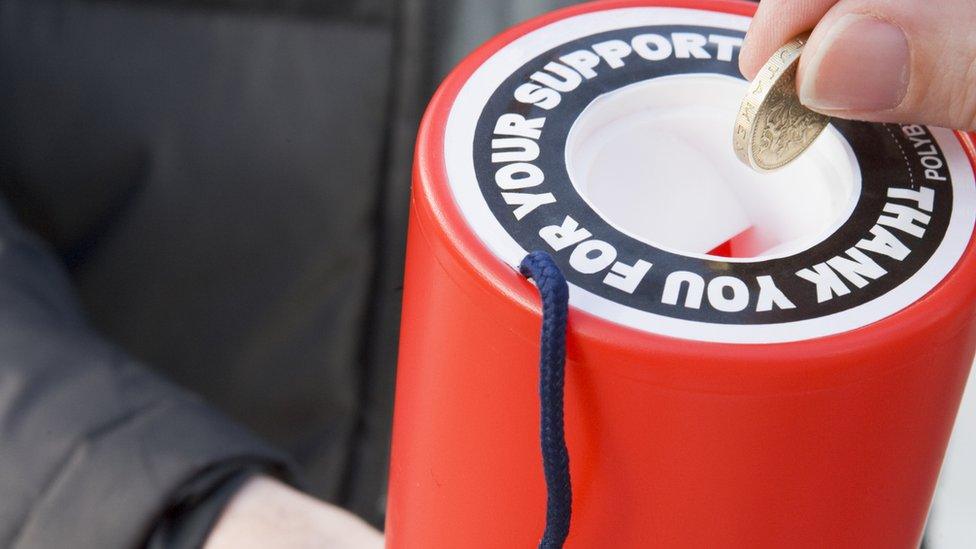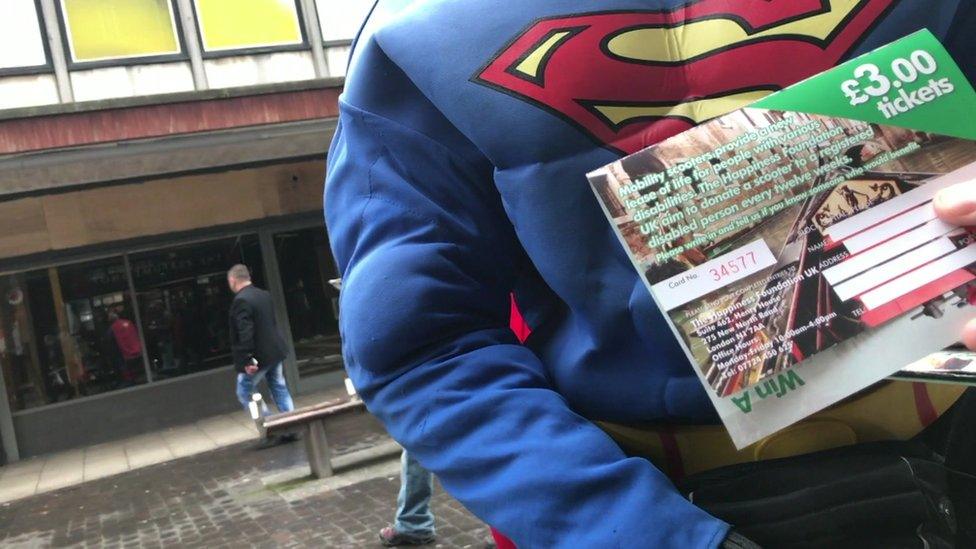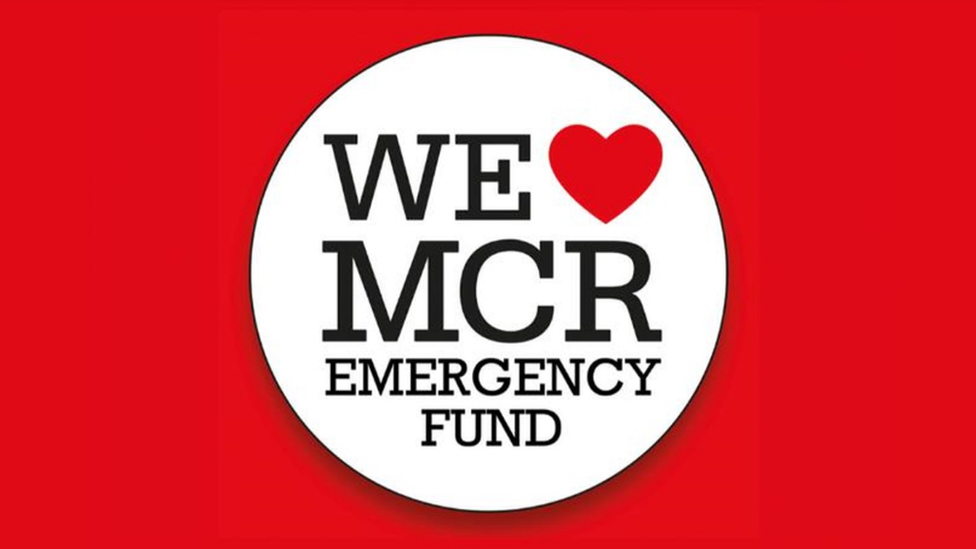How can you be sure where ‘charity’ donations go?
- Published

Some 800 cases of charity fraud were reported in the UK last year. But with police warning that they represent just a fraction of the number actually taking place, is enough being done to deal with the scammers?
Within hours of the Grenfell Tower fire, members of the public were looking for ways to help the victims and donate money. Unfortunately, the scammers were ready to dupe them and pocket their cash.
But the authorities were watching for any new websites set up with a link to the disaster, especially anything claiming to be a charity collection site.
On the first day of monitoring they found a scam website. As soon as money was deposited into the founder's bank account, the money was withdrawn in cash, which police described as "very suspicious" behaviour. The site was shut down and the bank account blocked.
Ch Insp Andy Fyfe from the National Fraud Intelligence Bureau at City of London Police, which handles fraud cases from around the UK, said there were similar incidents following the Manchester bombing.
"These things do tend to happen with regularity whenever there's some sort of high profile event that really touches the hearts of the public," he said.
Mobility scooters
There are more than 200,000 registered charities in the UK, with around £10bn donated by the public last year.
The public has the right to ask for information about these charities such as their trustees, work and details of their finances.
But the background of some fundraisers is not clear - such as the Happiness Foundation which sells tickets for £3, £5 or £10 on the street.

A man dressed as Superman sold Happiness Foundation tickets on the street in Stevenage
It claims it buys mobility scooters for disabled people, but is not a registered charity or company. Fundraising like this is not illegal, but it means it is very hard to determine what they are doing with the money.
A number of people have raised concerns about this organisation online, including Kath Temple, who set up her own Happiness Foundation eight years ago, in memory of her brother. Four years ago, she started getting complaints about its namesake.
"We were presenting to football's governing bodies and I felt embarrassed. I haven't done anything wrong, but I felt embarrassed because I knew that if they did a search perhaps that [the other organisation] would come up," she said.
We have seen evidence that the same people behind the Happiness Foundation are now selling the same competition tickets under the name, "Theme for a Dream Project". It is still not registered as a charity or company and still claims to give mobility scooters to disabled people.
When we contacted one of the men behind the Happiness Foundation he said it was not trying to mislead people and did buy the mobility scooters, but would not show any evidence. He said the Happiness Foundation no longer existed, but they would be honouring all of the competition entries they had received.

How to avoid a scam
Ask collectors for their charity registration number. You can check it on the Charity Commission Website
Ask to see their ID
Ask for more information about their charity. A genuine collector will be happy to tell you what they're collecting for
When donating online, avoid requests to send cash through money transfer companies. It's a common scam
Source: Charity Commission

We have seen no evidence that any of the actions of the Happiness Foundation or Theme for a Dream Project are illegal.
But some campaigners are taking direct action when they encounter fundraisers who worry them.
Former paratrooper Colin Eastaway, who has served in Iraq and Afghanistan, has been confronting people he believes are falsely posing as workers for military charities, and posting the videos online.
"It is the lowest of the low. Stealing, stealing from a charity, stealing from a disabled charity, stealing from any sort of charity is lowest of the low," he said.
'Earning good money'
Beyond the grey areas, in which organisations like the Happiness Foundation operate, there are criminals taking advantage of the public's generosity.
"Steve" worked for companies that raised money for armed forces charities through bucket collections, but a big chunk of the cash ended up in his and his colleagues' pockets.
They also sold competition tickets for £2.50, the proceeds of which they kept for themselves. "At the end of the day it was a job for us. And I would sometimes be earning good money," he said.
Ch Insp Fyfe said last year they had received 800 reports from the public about charity fraud.
"Whilst it's a fairly large number, we're conscious the problem is most likely a lot larger than that in reality," he said.
So is enough being done?
Charity law specialist Robert Craig from Howard Kennedy Solicitors said: "I don't think you can expect the police to do much more than deal with very obvious cases where they find, for example, people stealing money out of a tin, or they catch people as part of a larger fraud.
"It's all to do with what's the public interest in pursuing it, and how likely are they to get a conviction."
Watch the Victoria Derbyshire programme on weekdays between 09:00 and 11:00 on BBC Two and the BBC News channel.
- Published25 May 2017
